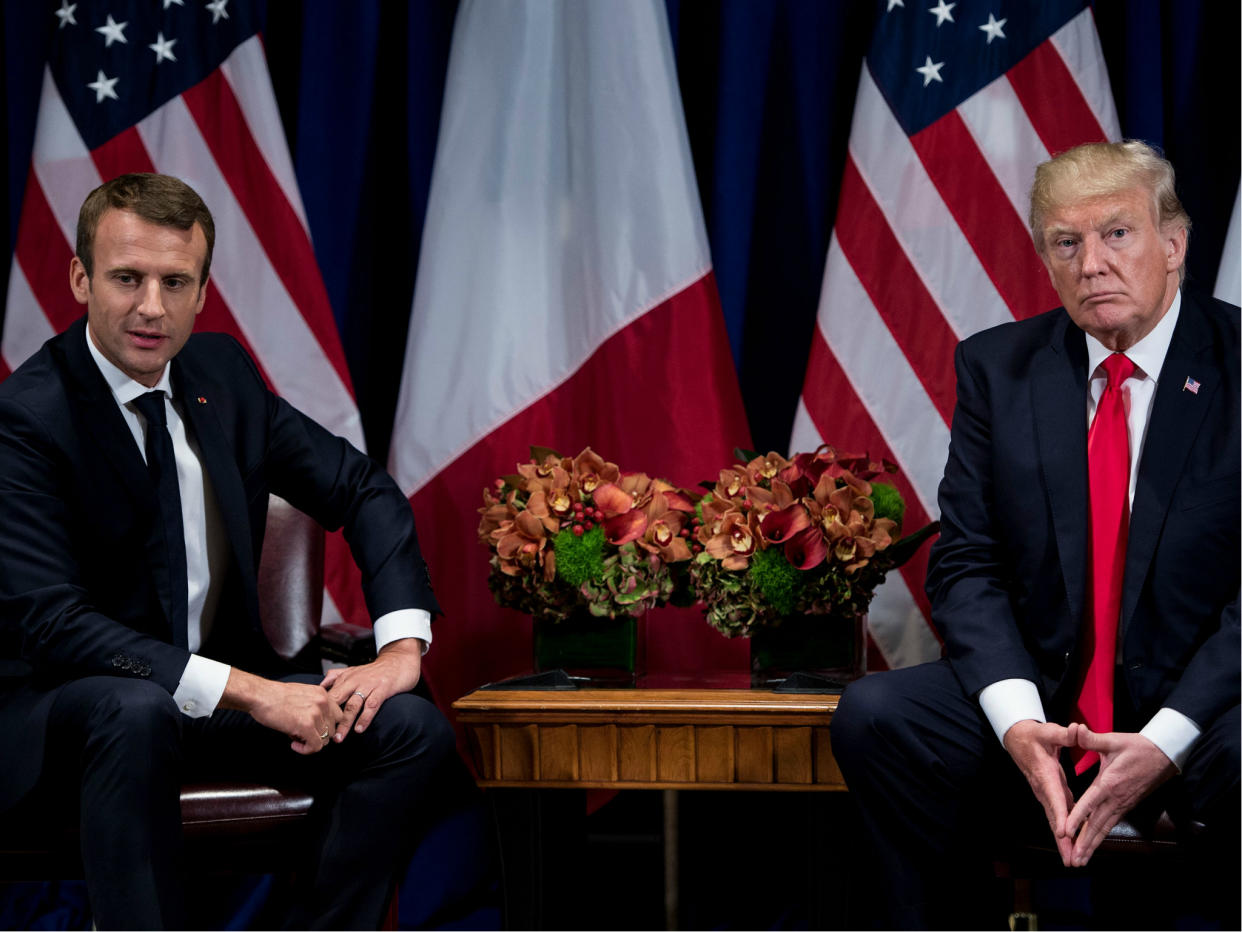Macron to warn Trump not to leave Iran nuclear deal because there is no ‘Plan B’

French President Emmanuel Macron is expected to caution President Donald Trump there is no “Plan B” European leaders with regards to the Iran nuclear deal and the US pulling out of it could significantly deteriorate the situation.
Mr Macron, who is seen as somewhat of a 'Trump whisperer' in deftly dealing with the sometimes bombastic American leader, has been trying to save the 2015 Joint Comprehensive Plan of Action (JCPOA) signed under President Barack Obama, which Mr Trump has vowed to ditch unless it is strengthened. The warning was echoed by other European leaders who have said there is no other option besides the six-country deal for limiting Tehran’s drive to develop nuclear weapons.
The US, China, Russia, UK, France, and Germany are all parties to the deal which was discussed at a nuclear non-proliferation conference at the United Nations in Geneva this past week. The UN representative for disarmament Izumi Nakamitsu said: "The Joint Comprehensive Plan of Action continues to be the best way to ensure the exclusively peaceful nature of Iran’s nuclear programme and to realise the promised tangible economic benefits for the Iranian people”.
Though the Trump administration agreed Iran’s nuclear programme is a major threat, the president announced in October 2017 he would not re-certify a nuclear deal signed by Iran and six world powers. Despite the evidence provided by the United Nations on Tehran's compliance with the deal, Mr Trump said it was too lenient on Iran. Iranian Foreign Minister Javad Zarif has backed Mr Macron’s stance on the deal.
The administration continues to say the country has violated portions of it. US nonproliferation envoy Christopher Ford said: "For several more years [Iran] continued its efforts to enrich uranium in violation of legally-binding UN Security Council requirements, and retains the ability to position itself, several years hence, dangerously close to rapid weaponisation”.
"Iran [is] a country that for years illegally and secretly sought to develop nuclear weapons, suspended its weaponization work only when confronted by the potentially direst of consequences without ever coming clean about its illicit endeavours," Mr Ford said.
Not re-certifying the deal or abandoning it will open the door for harsher economic sanctions to be placed on the country, the mitigation of which was a key inducement for Iran to comply with the historic deal. What concerns many Washington insiders is that Mr Trump's newest hire as National Security Adviser John Bolton is quite hawkish on pulling out of the deal as is his nominee for Secretary of State Mike Pompeo, who has called the agreement "disastrous".
Russia and China have vowed to block any US attempt to “sabotage” the deal, according to Foreign Minister Sergey Lavrov. He said that Moscow is “against revising these agreements, we consider it very counter-productive to try to reduce to zero years of international work carried out via talks between the six major powers and Iran”. Mr Lavrov has previously said that Mr Trump has “further destabilised” the world in his handling of the other nuclear weapons crisis - North Korea.
German Chancellor Angela Merkel is also scheduled to meet with Mr Trump this week and expected to say the same about the Iran deal.
Agencies have contributed to this report.

 Yahoo News
Yahoo News 
